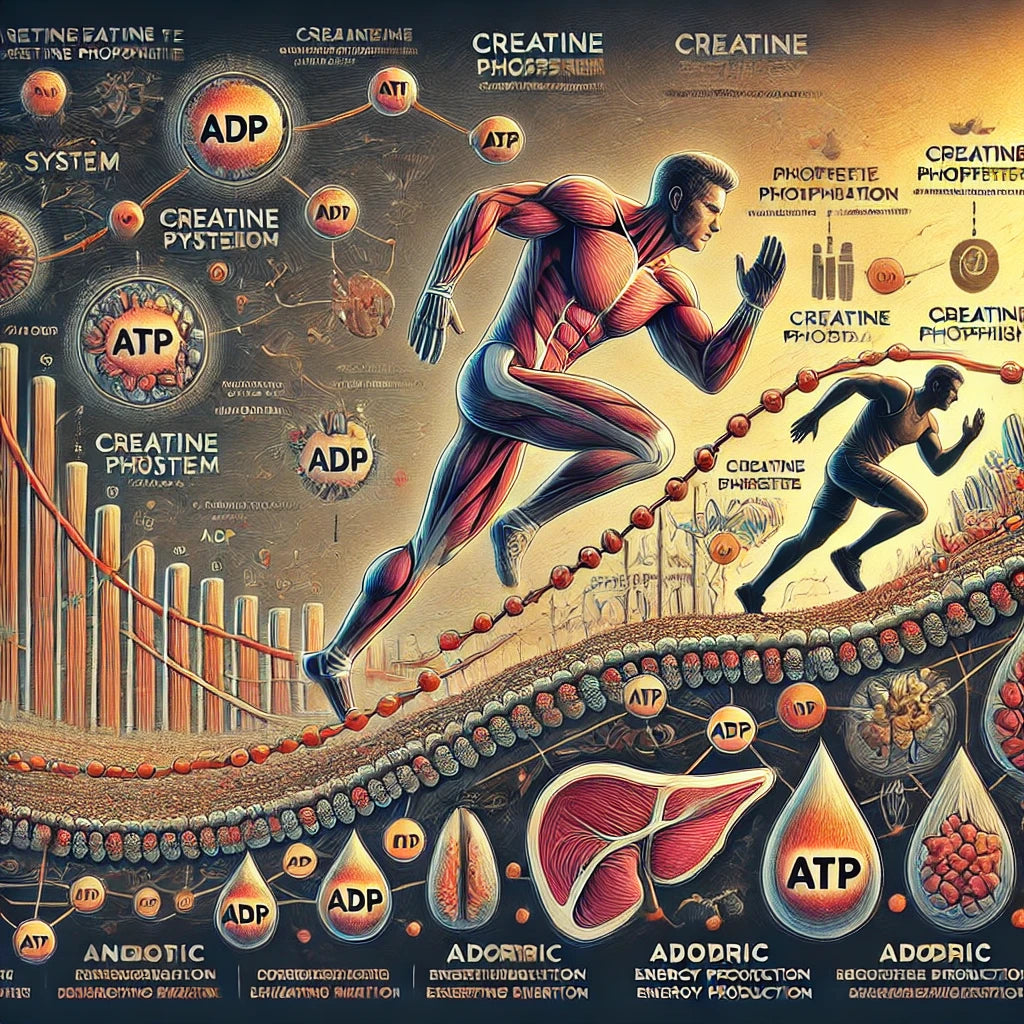Creatine is often discussed in the context of energy production, particularly in relation to quick energy needs and decision-making potential. This is because creatine phosphate plays a crucial role in providing rapid energy, not just for muscles, but for the brain as well. The brain’s energy demands are largely met through anaerobic processes, meaning creatine’s benefits extend beyond physical performance to cognitive function.
Energy Systems: Beyond Compartmentalization
A common misconception in physiology is viewing the body’s energy systems as isolated compartments. Typically, people think of the creatine phosphate system, the lactic acid system (which relies on carbohydrates), and the aerobic system (which uses oxygen) as distinct and independent. However, this is far from the truth.
In reality, these systems are not like light switches that turn on and off. They work in synergy, continuously interacting with each other. For instance, while creatine primarily supports anaerobic activities, its improvement can also enhance the efficiency of other energy systems. This interconnectedness means that enhancing one energy system can lead to benefits in others, albeit to a lesser extent.
Creatine and Endurance Athletes
Interestingly, research has explored the effects of creatine on endurance athletes, such as marathon runners. While creatine is typically associated with short bursts of energy, studies have shown that it can also be beneficial for longer, endurance-based activities. This further illustrates the interconnected nature of our energy systems and the versatile role of creatine in supporting overall performance.
Conclusion
In summary, creatine phosphate is essential not only for quick physical energy but also for cognitive function due to its role in anaerobic processes. Understanding that our energy systems are interdependent rather than isolated helps appreciate how improvements in one system can positively impact others. Whether you’re a sprinter or a marathoner, creatine can be a valuable addition to your nutritional regimen.
Antonia, J., et al. (2021, February).Common questions and misconceptions about creatine supplementation: what does the scientific evidence really show? Retrieved from https://pubmed.ncbi.nlm.nih.gov/33557850/
Branch, J. (2003, June). Effect of creatine supplementation on body composition and performance: a meta-analysis. Retrieved from https://pubmed.ncbi.nlm.nih.gov/12945830/
Bemben, M. & Lamont, H. (2005). Creatine supplementation and exercise performance: recent findings. Retrieved from https://pubmed.ncbi.nlm.nih.gov/15707376/.
Buford, T., et al. (2007, August 30). International Society of Sports Nutrition position stand: creatine supplementation and exercise. Retrieved from https://www.ncbi.nlm.nih.gov/pmc/articles/PMC2048496/
Candow, D., et al. (2023, June 27). “Heads Up” for Creatine Supplementation and its Potential Applications for Brain Health and Function. Retrieved from https://pubmed.ncbi.nlm.nih.gov/37368234/
Cooper, R., et al. (2012, July 20). Creatine supplementation with specific view to exercise/sports performance: an update. Retrieved from https://pubmed.ncbi.nlm.nih.gov/22817979/
Dalbo, V. et al. (2008, July). Putting to rest the myth of creatine supplementation leading to muscle cramps and dehydration. Retrieved from https://pubmed.ncbi.nlm.nih.gov/18184753/







